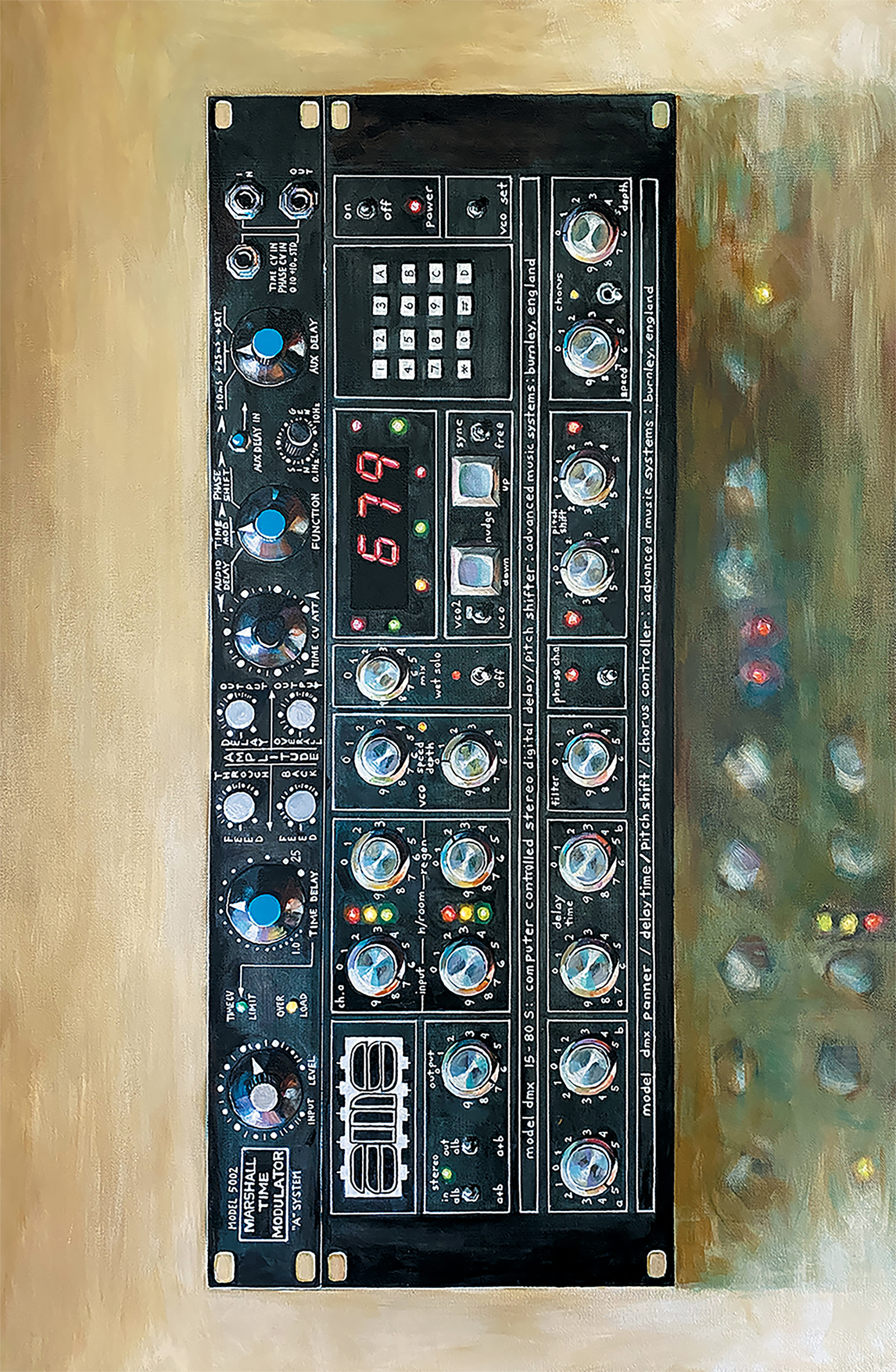Who doesn’t love Sony microphones? Their reputation is built on the C-37A, C-800G, and the C-38B; all of which deliver. I'd previously reviewed the C-100 series of mics [Tape Op #132] and was impressed by their quality, so I was curious to try out Sony's newest offering: the C-80 cardioid condenser microphone. This mic borrows its medium-sized capsule from the C-100, incorporates design elements from both the C-100 and the C-800G, but comes in at a street price of $499 (about 5 percent of the cost of the C-800G). Measuring just over 6 inches tall and 1.5 inches in diameter, the dual body construction C-80 is slightly shorter than the C-100 but more compact than a Rode NT1 or an Audio-Technica AT4050.
The C-80 is cardioid only and provides a -10 dB switch and a switchable Low Cut filter. The frequency response, self-noise, SPL handling, and dynamic range specifications are all quite respectable and surpass those of many microphones costing several times the price. The package includes a ridged zippered case and a sturdy shock mount (that, unfortunately, doesn't fit in the carrying case). Like all modern Sony mics, the body is finished in all black with the familiar white Sony logo. The build quality and craftsmanship of this mic is typical Sony – sturdy and sleek construction with a basic, classic look. This mic feels as if it will last a lifetime.
I regularly use a C-800G and have spent a lot of time with the C-100, and, in my opinion, the C-80 holds a rightful place in that family and may even lean into the Neumann family's tone. That is to say, the mic sounds very even, much like other models from Sony's lineup. The midrange is well-balanced and present, akin to the beloved characteristics of Neumann U 67s and U 87s. Its slight high-end lift begins higher in frequency than a vocal's sibilant range, so the mic feels natural and open on top but not overly bright or sizzly like so many budget mics that exaggerate the 4 to 8 kHz range. During some listening tests, I pitted the C-80 against AKG 414s, Rode NT1s, Neumann TLM 103s and U 87s, as well as Audio-Technica’s AT4055 and AT4033. The C-80 fared extremely well against these mics and was often chosen first on both male and female vocals as well as acoustic guitar.
On voiceover, the C-80 works great. It presents the midrange frequencies evenly and with authority and isn’t peaky in the midrange like similarly priced dynamic VO mics. There is a sweet spot that delivers the most satisfying sound directly in front of the capsule and the performer can quickly move around to find the spot where the mic lights up with a full and present tone. Male voice didn’t seem to vary whether the 70 Hz Low Cut switch was engaged or not, however, it did substantially diminish rumble from a loose mic stand.
The mic has a very low self-noise and was dead quiet, even when using the built-in preamps of a budget USB interface. For sung vocals, I wouldn’t hesitate to include the C-80 in a lineup for any singer to audition through. It felt slightly drier than some vocal mics in its price range, which I attribute to its textbook cardioid pattern, especially in the low end and midrange frequencies. The sturdy body and open-mesh head basket minimize resonances in the mic, which also contributes to the purity of its tone. Notably, even without a pop filter, singers can get close to this microphone without excessive proximity effects or overloading the capsule.
On acoustic guitar it works very well. I like the sound of mid-sized diaphragm mics on acoustic guitars, and when close-mic'ing a small-body Fender acoustic I was able to capture warm and detailed strumming and fingerpicking without any boominess or exaggerated finger squeaks. The C-80 reminds me of a vintage Neumann KM 54 on guitar, where all the sonic information is there but the midrange seems more focused than the highs and lows. Many modern mics exaggerate the sparkle on guitar too much, but not so with this Sony.
I didn’t get to try the C-80 on trumpet or sax, but based on the way it presents vocals and guitar I have a feeling I would like it for brass instruments. Similarly, I think a pair would be great for piano, congas, or any other instruments where an un-hyped but full-range, recording is desired. At $499 the C-80 is a great value for a mic that will last a lifetime.




_disp_horizontal_bw.jpg)